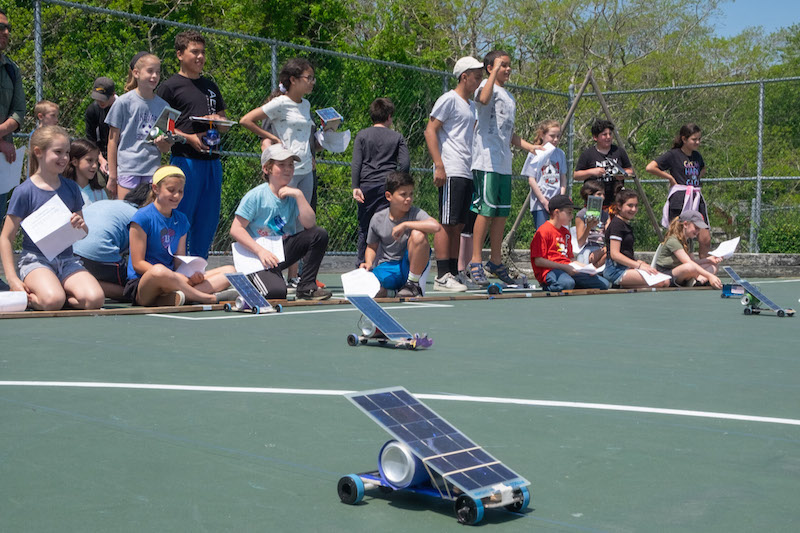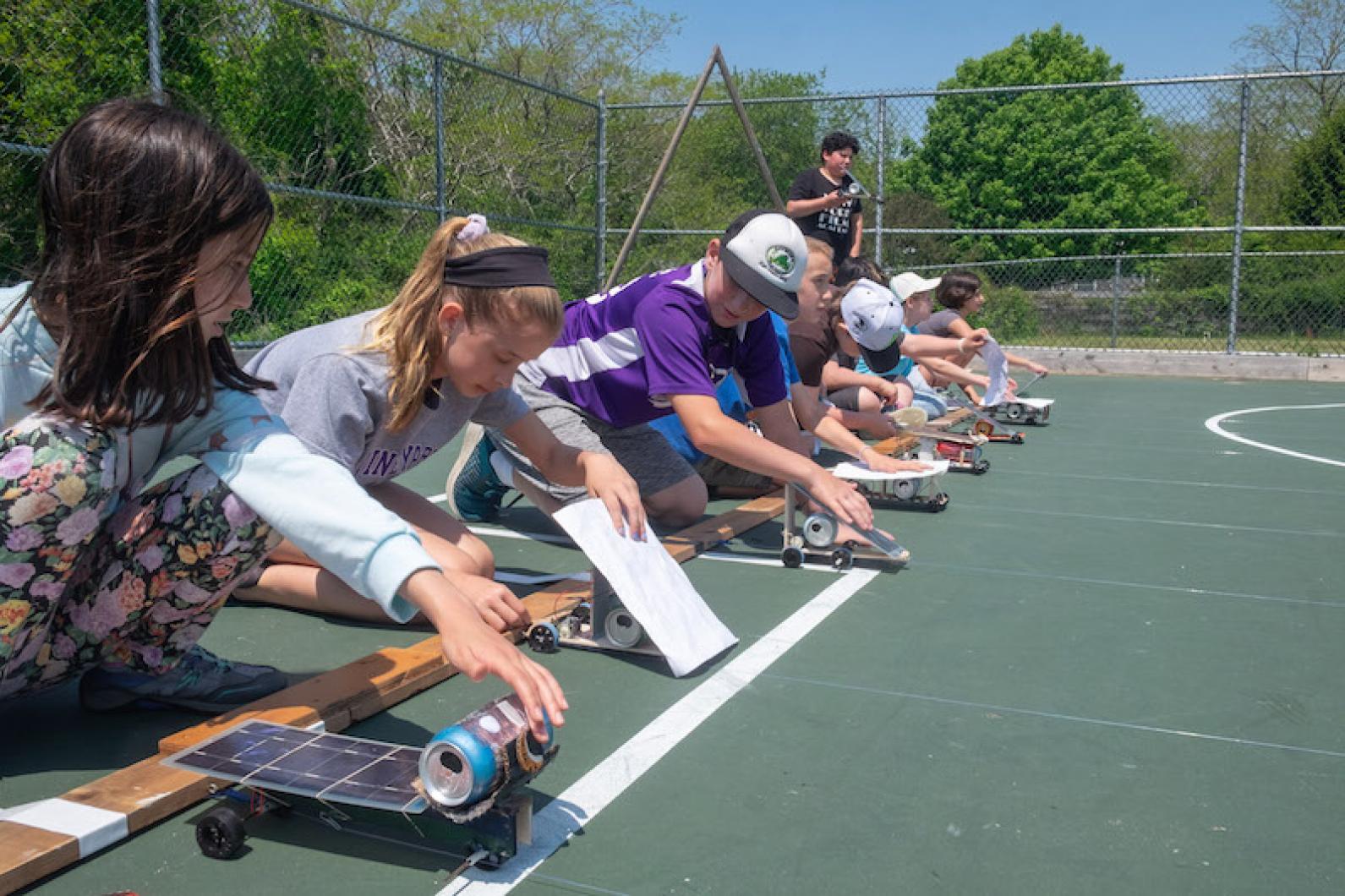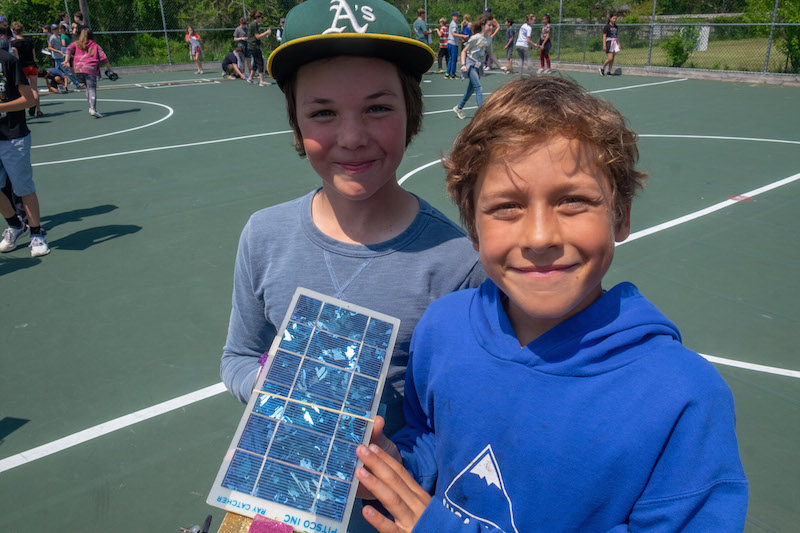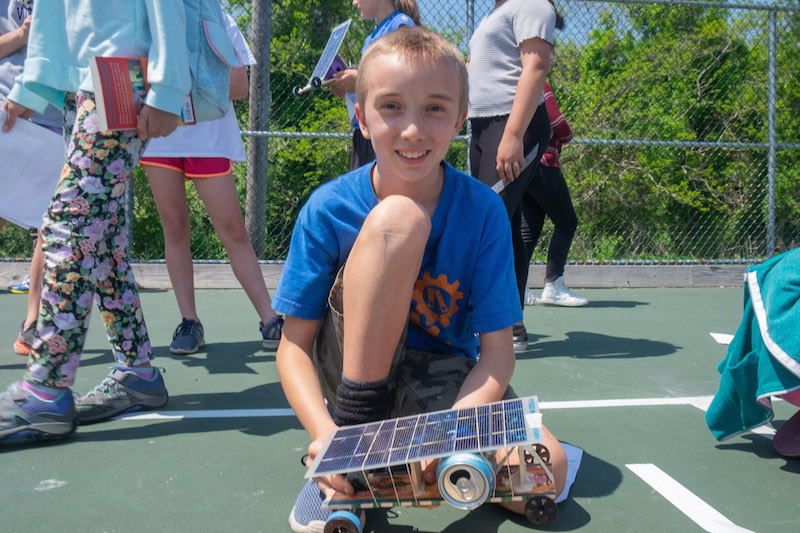At high noon, 202 fifth-grade students from the Island’s six middle schools assembled at the Edgartown tennis courts Friday to test their solar-powered, balsa wood vehicles in the annual solar car race.
The sun was high and strong as students took their places at the starting line, their sun-screened faces showing the strength of the energy source used to power their vehicles.
In a photo finish, teammates Claus Smith and Lathrop Keene from the Chilmark School took first place, becoming the final recipients of the award as the 12-year tradition comes to a close.
Due to changes in the state’s standards for academic curriculum, the schools will no longer hold the race but will be working together to forge a new science-based competition for their students. Starting next year, the event will be redesigned for sixth-grade students, making this group of fifth graders both the last to participate in the solar car race and the first to embark on a new era of renewable energy projects.
For now, educators and funders of the project are still working out the details of the next phase of the competition.
“Teachers from different schools will come together over the summer to redesign the event,” said Leah Dorr, an engineering teacher for the Oak Bluffs School and the event coordinator. “It’s amorphous at the moment, but the solar car race is a great foundation to build off.”
Ms. Dorr said that Massachusetts already has the highest engineering standards in the nation, but she wants to make sure the next generation continues to meet those standards. She suggested that the competition next year could be a science fair, in which students independently design their own projects.

“They could build solar ovens or create solar water pumps,” she said. “The main goal is to have students apply the science content of the curriculum to solve practical problems.”
Vineyard Power, a renewable energy cooperative that stepped in this year to sponsor the event, is dedicated to continuing to fund renewable energy education for the Island schools. Richard Andre, president of Vineyard Power, agreed that practicality, in addition to introducing other types of renewable energy, is a vital aspect of redesigning the competition.
“We want to continue to support the schools as they reexamine what they want to do,” Mr. Andre said. “Our goal is to continue educating students on solar, wind and climate change, and help them by giving them a practical project to work on.”
Kate Warner and Nan Doty, founders of the Vineyard Energy Project, held the first solar car race at the West Tisbury town hall in 2006. Their goal was to introduce young students to solar and renewable energy in order to build a foundation for understanding how to counter climate change.
“I think we were at least a bit successful,” Ms. Warner said. “What means a lot to me is that kids learn about solar energy, and from there they can go on to learn about aspects of climate change and hopefully do something about it in the future.”
Sampson Mallory, a fifth grader from the Oak Bluffs school who placed second in his heat, personifies this goal.
“My mom wants me to go to a good college, and I’m thinking about studying solar energy,” Sampson said. “I think it’s important because fuel is destroying the earth, and once we burn it we can’t get it back. Solar energy never runs out, and it can be used to power houses and cars.”
He paused, looking down at the thumb-sized motor of his solar-powered vehicle.
“Real cars,” he added.






Comments
Comment policy »